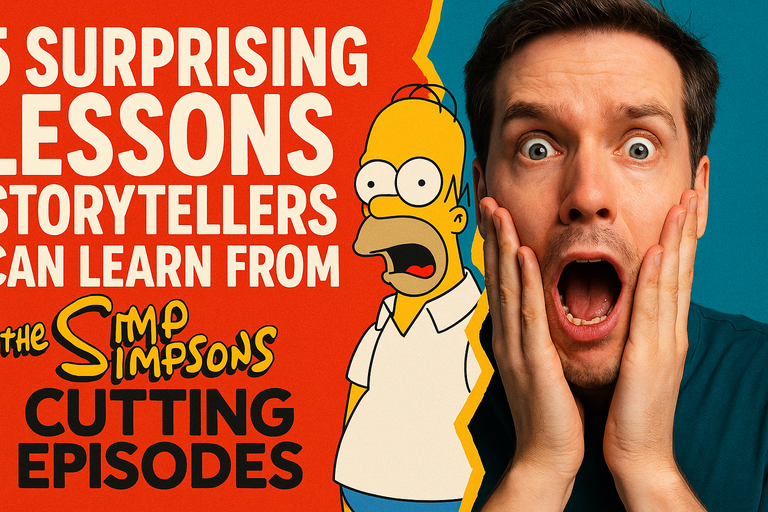
Did you ever imagine TV's favorite yellow family would start telling fewer stories each year?
Picture this: You tune in for your weekly dose of Springfield shenanigans, only to learn that ‘The Simpsons’—the longest-running scripted primetime series—has just announced it will slash five episodes from future seasons. Sound drastic? Or does it signal something even more intriguing about the evolution of storytelling in 2025?
According to Cracked, Matt Groening and showrunner Matt Selman both insist this isn’t a sign of decline, but a strategic move to keep the show “a full-time job.” But what does this really mean for anyone crafting stories in today’s hyper-competitive, content-saturated world?
Get ready—here are five surprising storytelling lessons you can steal from the latest Springfield shake-up.
1. Quality Over Quantity Isn’t Just a Cliché—It’s Survival
Let’s be honest, we’ve all felt the pressure to produce more—chapters, scripts, videos, even tweets. But what if scaling back actually makes your work stronger? Groening’s bold move suggests that sometimes, pushing out fewer episodes can make each one matter more. Viewers can sense when creators are stretched thin. Selman says they’re staying “full-time,” not just coasting on autopilot.
Consider your own projects: Is there room to focus your energy where it counts, instead of spreading yourself too thin?
2. Mastering the Cliffhanger: Creating Anticipation Out of Scarcity
Here’s a paradox: when there’s less of something, people want it more. Cutting episodes forces fans to savor each installment—and anticipate what’s next. This is a narrative trick as old as Scheherazade: leave them wanting more.
- Are you giving your audience time to breathe?
- Could spacing out your story beats actually boost engagement?
If you’re not sure, check how often your audience actually finishes the stories you share.
3. The Power of Reset: Refreshing Long-Running Stories
Thirty-five seasons is nearly unheard of. The Simpsons’ reduction is a masterclass in longevity: it’s not just about endurance, it’s about renewal. Resetting your pace and structure forces you to reevaluate what’s working—and what isn’t.
Ask yourself: - When was the last time you deliberately shook up your creative routine? - Could a break—or a change in format—help you rediscover your passion?
Legendary stories don’t just persist; they evolve.
4. Lean Teams, Richer Stories: Making Space for Innovation
By streamlining the episode count, the creative team can dive deeper. Fewer deadlines mean more bandwidth per episode. This opens the door for experimentation: sharper jokes, bolder plots, richer animation… the list goes on.
Modern storytellers, whether solo or in teams, could benefit from periods of concentrated focus. Sometimes, your “less” can achieve much, much “more.”
5. Listening to the Zeitgeist: Adapting When Audiences Change
2025 isn’t 1989. People digest stories on TikTok and through Discord, not just on network TV. By adjusting its output, The Simpsons is quietly acknowledging a new era—one where attention is currency and agility is vital.
So what about your next project? Are you tuned in to where your audience actually is—and what they care about?
If you’re seeking deeper insight into adapting stories across mediums, check out The Infinite Dude Media’s hub for storytellers. Their work in connecting creatives with the latest trends might just offer the edge you need to keep your stories fresh, whether you’re working on novels, scripts, or something entirely new.
What’s Next for All of Us?
The Simpsons’ episode cut isn’t just TV news—it’s a reminder for all creators: in a world of abundance, restraint can be revolutionary.
So, the next time you’re tempted to crank out just one more chapter or scene, remember Springfield’s lesson and ask yourself—would your story be stronger if you focused on making each moment count?
How will you adapt your creative process this year? Share your thoughts below and let’s start a conversation about the future of storytelling!


